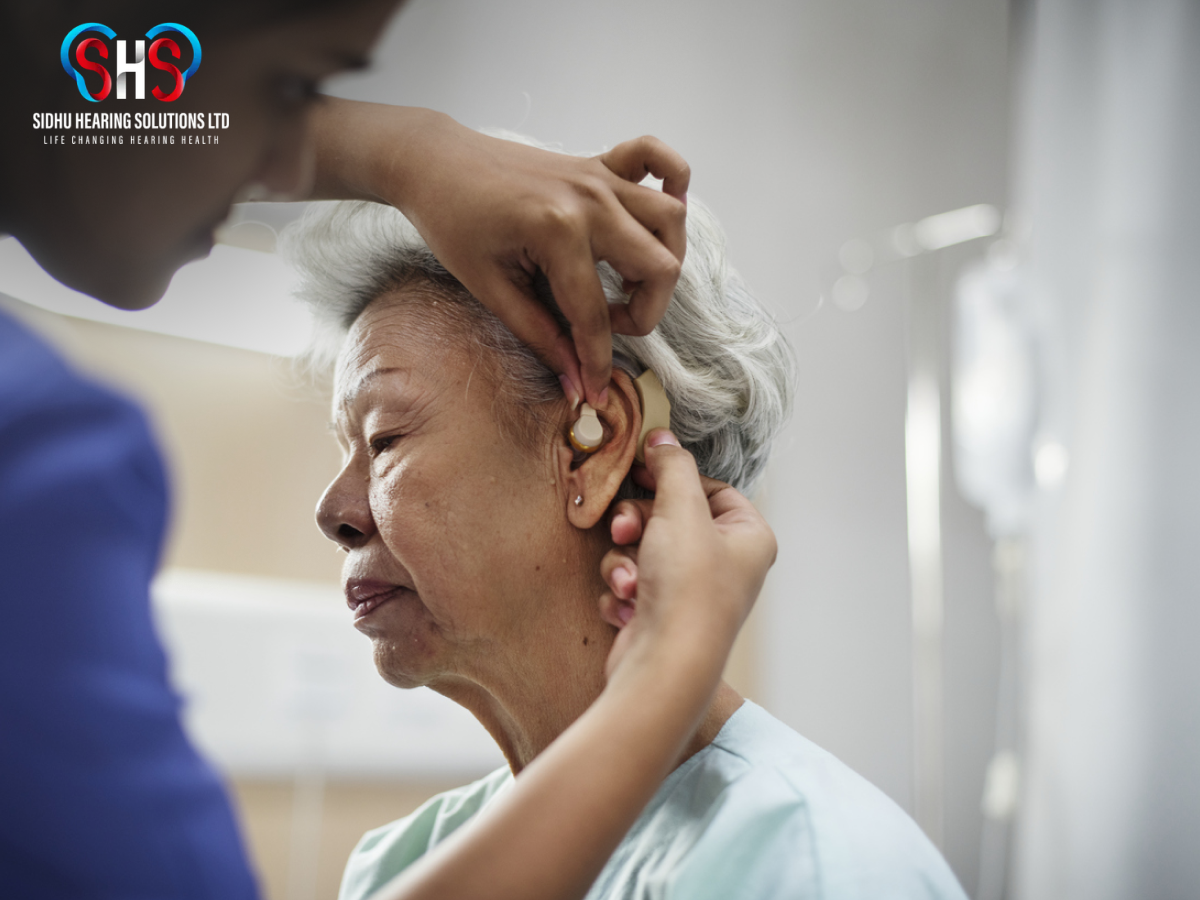The Future of Hearing Aids: AI and Biometric Sensors Leading the Way
The Future of Hearing Aids: AI and Biometric Sensors Leading the Way
Living with hearing loss is challenging, but thanks to the rapid advancements in hearing aid technology, those challenges are becoming easier to manage.
Modern hearing aids are no longer the bulky devices of the past; they are sleek, sophisticated, and packed with cutting-edge technology.
Here in the UK, where more than 11 million people live with some form of hearing loss, these advancements are not just welcome—they're life-changing.
In recent years, hearing aid technology has been revolutionised by artificial intelligence (AI) and biometric sensors, transforming the way we approach hearing health. If you’re a hearing aid wearer or someone exploring options for better hearing, understanding these technologies could help you make an informed choice.
What Is AI Doing in Hearing Aids?
Artificial intelligence, once the stuff of science fiction, is now being seamlessly integrated into hearing aids. But what does that mean for you as a user?
Adaptive Sound Processing
Traditional hearing aids often amplify all sounds equally, making noisy environments overwhelming. AI-driven hearing aids, however, use machine learning algorithms to learn from your listening preferences.
Over time, these devices can differentiate between background noise and important sounds, like speech, and adjust automatically. Imagine a hearing aid that knows to turn down the noise of a bustling café while highlighting your friend's voice—AI makes this possible.
Personalisation and Learning
The more you wear an AI-powered hearing aid, the smarter it gets. These devices can store data on your listening habits and environments, allowing them to provide more tailored sound adjustments. For instance, if you frequently attend meetings or love spending time in nature, your hearing aids will start optimising for these settings.
Improved Speech Recognition
AI is enhancing speech recognition technology in hearing aids. Through advanced natural language processing, modern devices can distinguish between multiple speakers and help focus on the most relevant one. This is particularly useful in group settings, making conversations less strenuous and more enjoyable.
Enter Biometric Sensors: More Than Just Hearing Aids
Biometric sensors are another exciting addition to modern hearing aids, transforming them from simple sound amplifiers into multi-functional health monitoring devices.
Heart Rate Monitoring
Some hearing aids now come equipped with biometric sensors that can monitor your heart rate. For individuals who wear their hearing aids for extended periods, this feature provides continuous health monitoring without the need for additional devices. It's like having a fitness tracker in your ear!
Fall Detection and Alerts
Falls are a major concern, especially for older adults. With built-in accelerometers and gyroscopes, modern hearing aids can detect sudden movements or falls and send alerts to a designated contact, such as a family member or caregiver. This is a game-changer for those living alone, providing both users and their loved ones peace of mind.
Tracking Overall Wellbeing
Biometric sensors can also track steps, activity levels, and even sleep patterns. This data is invaluable for maintaining overall health and wellbeing, offering insights that can be shared with healthcare providers for more personalised care plans.
Get in touch for more information.

How AI and Biometric Sensors Are Transforming Lives
For many people in the UK, these technological advancements are already making a significant impact.
Take the example of Sarah, a 65-year-old from Birmingham who has been wearing hearing aids for over a decade. Since upgrading to an AI-powered hearing aid with biometric sensors, she reports feeling more confident in social situations, thanks to better sound clarity and reduced background noise. The built-in heart rate monitor also helped her detect an irregular heartbeat early on, prompting a timely visit to her GP.
Similarly, James, a 45-year-old professional in London, found that his AI-powered hearing aids helped him navigate the busy city environment more comfortably. He especially values the ability to personalise his hearing experience and seamlessly switch between work meetings and leisure activities without having to manually adjust settings.
What’s Next? The Future of Hearing Aid Technology
As AI continues to evolve, hearing aids will only get smarter. Future developments may include integration with smart home systems, allowing your hearing aids to communicate with other devices, such as your TV or doorbell. Imagine a scenario where your hearing aids automatically adjust when your favourite programme starts or alert you when someone is at the door.
Moreover, as biometric sensors become more advanced, hearing aids could potentially provide even more health insights. From monitoring blood oxygen levels to providing early warnings for health conditions like diabetes, the possibilities are vast.
What Should You Consider When Choosing a Hearing Aid?
When looking for a hearing aid that incorporates AI and biometric sensors, consider the following:
- Compatibility: Ensure that the hearing aid is compatible with your lifestyle. Do you spend a lot of time in noisy environments? Look for devices with advanced noise-cancellation features.
- Health Monitoring Needs: If health monitoring is important to you, opt for models with comprehensive biometric sensors.
- Ease of Use: While these devices are sophisticated, they should still be user-friendly. Make sure the app and device interface are intuitive and accessible.
- Professional Advice: Always consult with a qualified audiologist who can help you navigate these options and find the best fit for your unique needs.
- The integration of AI and biometric sensors into hearing aids is revolutionising hearing care, providing not only better hearing experiences but also valuable health insights. Whether you're already a hearing aid user or just starting to explore your options, these advancements mean more personalised, effective, and supportive solutions are available.
As the UK continues to lead the way in embracing these technologies, there has never been a better time to invest in your hearing health. With AI and biometric sensors at the forefront, the future of hearing aids is not just about amplifying sound—it's about enhancing lives.
Have you tried an AI-powered or biometric sensor-equipped hearing aid? Share your experience with us in the comments below!
Get in touch for more information.


Address
Ealing Hearing Centre
64 Northfield Avenue
Ealing
W13 9RR
Ealing Hearing Centre is a trading name of Sidhu Hearing Solutions Ltd a company registered in England and Wales with company number 13649263.
All Rights Reserved | Sidhu Hearing Solutions Ltd
